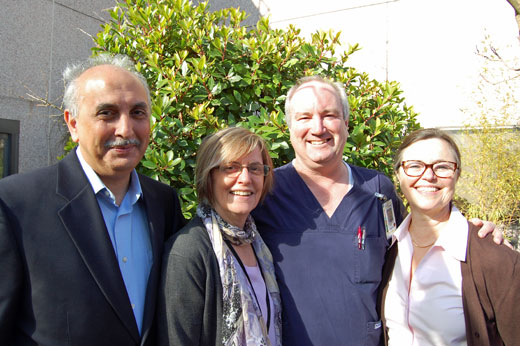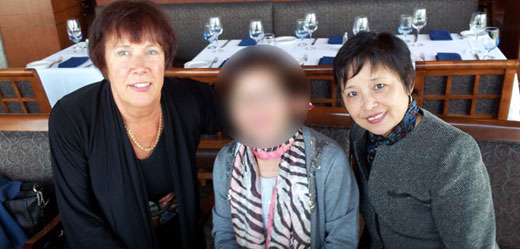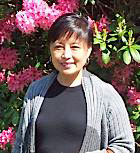Respecting Barbara’s wishes
Talking about Barbara’s final days can be difficult for Ann Harvey, but ask her what she remembers most about her dear friend and she smiles.
“Barbara was a kind and loving woman who made herself available to her family, her church and her special friends,” she says.
Ann first met Barbara as a client. A massage therapist, Barbara saw Ann and her husband Don every Thursday. Over the course of 10 years, the three became friends. Ann and Don became “aunt” and “uncle” to Barbara’s twin daughters. They celebrated birthdays and shared interests together. One of those interests was Seva Canada, a Vancouver-based charitable organization devoted to restoring sight and preventing blindness in the developing world.
When Barbara was diagnosed with metastatic colon cancer, Ann and Don were the first to know.
From friend to substitute decision-maker
Barbara asked Ann to serve as her substitute decision-maker, and with the help of her VGH palliative care team, Barbara’s advance care plan and goals of care were recorded. Contrary to family tradition, Barbara wanted to donate her eyes.
To honour Barbara’s wish, her eyes would have to be harvested within four hours of death, an interval not in keeping with her family’s Buddhist faith. The family conference was difficult.
“There were a lot of tears,” recalls Elizabeth Beddard-Huber, clinical nurse specialist, “but the family understood we were doing the best for the patient.”
Later, when Barbara’s sisters arrived from Taiwan, she was too weak to speak for herself and relied on Ann to convey her wishes. More challenging conversations ensued but the family eventually came to peace with Barbara’s decisions.
Advance care planning gives patients a voice

Barbara’s palliative care team (l to r): Afzal Mangalji, social worker; Dr. Wendy Yeomans, medical director, palliative care; Ken May, LPN and Elizabeth Beddard-Huber, clinical nurse specialist.
Looking back on Barbara’s case, Ken May, LPN, says it was “heart-wrenching — I felt so bad for her daughters and what they were going through. The father in you comes out, and I did what I could to explain things to them. ”
It was a complex case, agrees Dr. Wendy Yeomans. “There were two young teenagers suddenly thrown into an adult world. Language barriers and differences in beliefs complicated matters, but thanks to Ann and Barbara’s advance care plan, we were all able to respect the patient’s wishes.”
Advance care plans and substitute decision-makers keep the patient’s voice at the centre, says Elizabeth. “In the end, they help people come to terms with their loved one’s decisions, even when they don’t agree with them. In many cases, they ease the burden for family at a painful time.”
As for Ann, she misses her friend but was glad she could help. “It was an honour to be of assistance to Barbara and her family.”
How you can plan now
Life is unpredictable. You never know when a serious accident or illness may render you incapable of speaking for yourself. By planning ahead, you ensure your wishes will be respected, and it will be easier for your loved ones at a painful time. Here’s how you can prepare a basic advance care plan:
- Tell someone close to you: Speak with close family or friends and your health care provider(s) about your health care wishes in the event you can’t speak for yourself.
- Write it down: Use the guide and workbook “My Voice: Expressing My Wishes for Future Health Care” to help you record your beliefs, values and wishes for future health care treatment.
- Develop a contact list: Record the names and contact information of the people who qualify to be on your temporary decision-maker list.
For VCH policy and health care provider resources on advance care planning, visit http://vcha.ca/acp (internal) or www.vch.ca/acp (public).



Barn Gannon
Is there somewhere we can obtain the workbook “My Voice” or do we have to print it out?
Elizabeth Beddard-Huber
You can obtain a copy of “My Voice” by emailing advancecareplanning@vch.ca
Copies are also available at the BCCA Library on 10th Avenue.
John Carsley
I just printed out “My voice”(all 52 pages). Difficult to imagine how we could make it more complicated. There are actually 18 pages of forms one might fill out. I thought my life would be less bureaucratic when I moved here from Québec. Au contraire!
Pady Dunn
Thank you for sharing this story with the world at large.